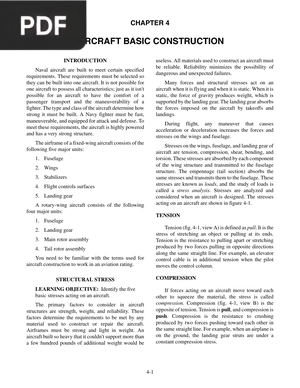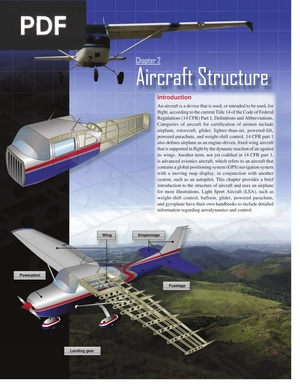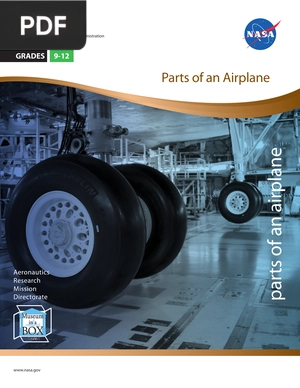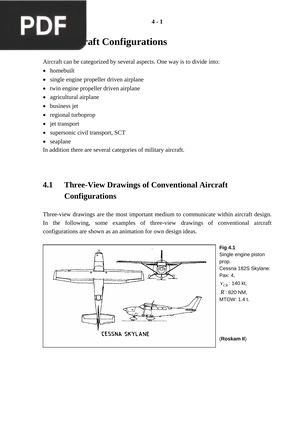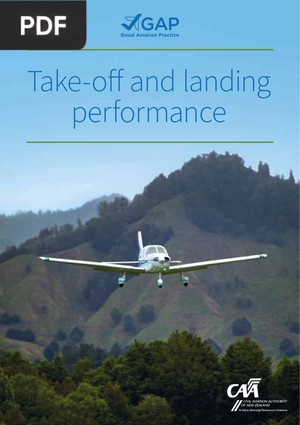Aerodynamics of Flight
Author: Federal Aviation Administration
*Wait a few seconds for the document to load, the time may vary depending on your internet connection. If you prefer, you can download the file by clicking on the link below.
Information
Description: Aerodynamics of Flight by Federal Aviation Administration explains the fundamental forces at play during flight, including thrust, drag, lift, and weight. Understand how aircraft design and weight impact flight maneuvers to enhance your piloting skills.
Pages: 51
Megabytes: 20.31 MB
This may interest you
Aircraft Basic Construction
Extension: PDF | 22 pages
Aircraft Basic Construction por Indian Institute of Technology Kanpur offers a comprehensive overview of aircraft structural components and materials. It details the stresses and forces acting on airframes, essential knowledge for understanding aircraft design and maintenance.
Aircraft Structure
Extension: PDF | 16 pages
Aircraft Structure por UF MAE University of Florida provides an introduction to aircraft design, covering aerodynamics and control systems. It is a valuable resource for understanding fundamental concepts, essential for aviation enthusiasts and engineers.
Parts of an Airplane
Extension: PDF | 26 pages
Parts of an Airplane by NASA offers a basic understanding of aircraft components for students. This document is a great introduction to aerospace engineering and aircraft design principles.
Aircraft Configurations
Extension: PDF | 11 pages
Aircraft Configurations por HAW Hamburg Department Fahrzeugtechnik und Flugzeugbau presents a visual guide to diverse aircraft designs, including conventional and unconventional types. It's a valuable resource for understanding the evolution and variety of aircraft configurations.
Take-off and Landing Performance
Extension: PDF | 36 pages
Take-off and Landing Performance por The Civil Aviation Authority of New Zealand and Aviation Security Service keep New Zealand provides crucial insights into aircraft performance during these critical flight phases. Understand factors affecting distances and enhance safety through detailed performance calculations.


